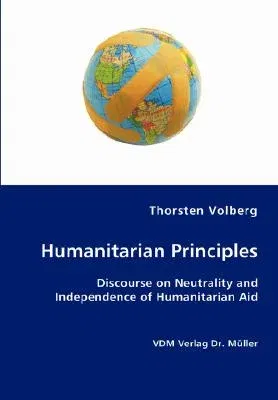The humanitarian principles of humanity, neutrality and impartiality
provide an ethical framework that defines and delineates the
humanitarian space within which relief agencies are supposed to operate.
Current experiences, however, show that these traditional principles
were not designed to cope with the development underlying the increasing
merging of humanitarian aid and politics. To avoid political
manipulation, relief organizations must rethink these principles and
face the responsibility of getting more involved in the broader
political arena to be able to take appropriate action, and to avoid
long-term damages on a society. The author examines the difficult
realities in a heterogenic humanitarian environment, by addressing all
the complex legal and political issues surrounding an emergency,
including the impact of external actors like donors, host governments,
and armed forces. It therefore provides a realistic understanding for
everyone who is working in the field of humanitarian aid and development
policy of the possibilities and limits of being "neutral" and
"impartial" in current crisis responses. In this regard, the paper
further analyzes the 'Sphere' process on how far it is taking political
influences on humanitarian aid into consideration, and can thus actually
be seen as a reasonable guideline for relief organizations in the 21st
century.


